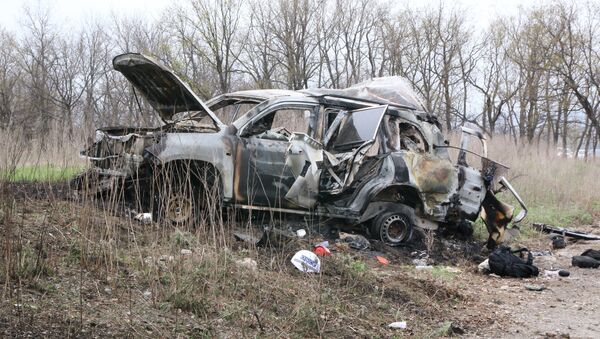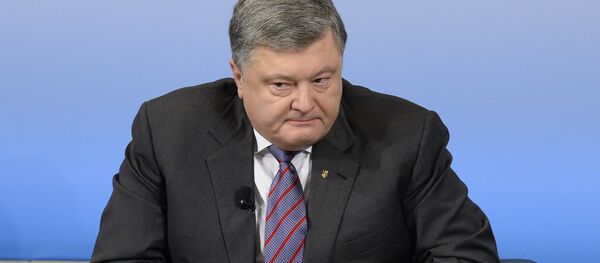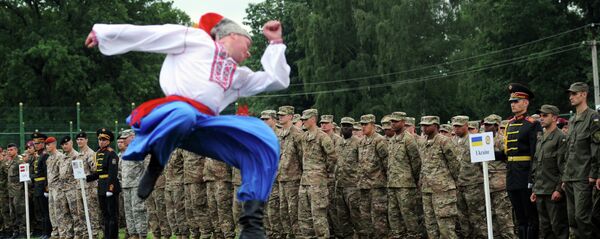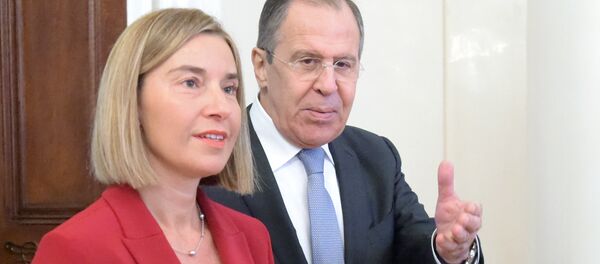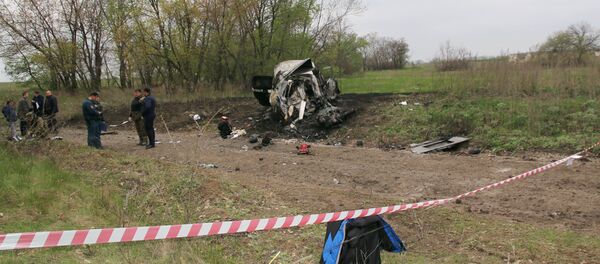On Sunday, a two vehicle convoy from the Organization for Security and Cooperation in Europe (OSCE) carrying out monitoring in the eastern Ukrainian breakaway region of Lugansk was struck, destroying one of the vehicles. The deadly incident, thought by OSCE chairman Sebastian Kurz to have been the result of a mine blast, killed one US national and injured two OSCE staff members from Germany and the Czech Republic.
The Security Service of Ukraine immediately opened a criminal investigation into the incident. Ukraine's Ministry of Defense, meanwhile, has claimed that authorities from the Donbass breakaways were responsible.
Kiev officials also used the attack to propose that OSCE observers in Ukraine be armed, notwithstanding the fact that the organization's monitoring mission obliges them to maintain their neutrality.
Russian Foreign Minister Sergei Lavrov commented on the attack by insisting on the need for a "prompt, impartial, transparent investigation." Russia's Foreign Ministry has also issued a separate statement saying that "the circumstances of the incident indicate a high probability of a provocation aimed at undermining the peaceful settlement process in Donbass."
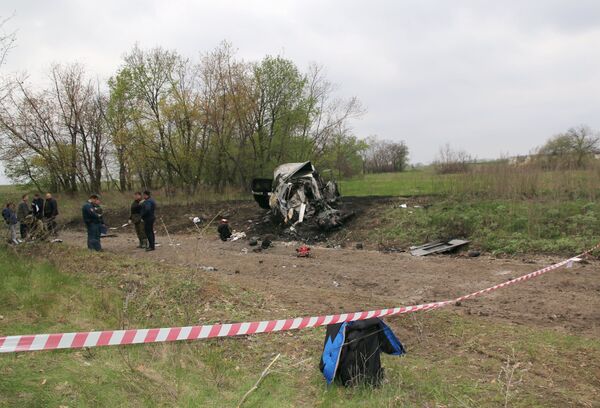
Speaking to Radio Sputnik, political scientist Rostislav Ischenko, president of the Ukraine-based Center for Systemic Analysis, stressed that although he was confident that authorities from the Lugansk People's Republic (LPR) would allow Ukrainian investigators to conduct their investigation into the blast, together with other international investigators, it remains unclear whether Kiev will take advantage of such an invitation, since they do not recognize LPR authorities as a legitimate party for negotiations.
"Of course this could have been the accidental explosion of a mine that was placed long ago," Ischenko noted. "But it's also possible that it was not an accident. And then the Security Service of Ukraine would be investigating a terrorist act which it itself organized. This is also possible."
Given everything that's known about the current authorities in Kiev, it's simply not possible to rule out Kiev's involvement, the political scientist stressed.
"It's [also] worth noting that just as an investigation began at the site of the explosion, Ukrainian forces began shelling the area with heavy artillery," he added.
RIA Novosti international affairs contributor Alexander Khrolenko agreed with his Ukrainian colleague, and recalled that the idea of introducing UN peacekeepers from European countries (i.e. NATO members) into Ukraine is nothing new. Poroshenko had signed the corresponding decree over two years ago, in March 2015, although Kiev's Western partners have failed to engage, pointing to the need to involve Moscow in the peace process, Khrolenko wrote.
"Even then, it was already clear to many in Brussels and Washington that such a mission in the Donbass might end leading not to peace, but to coerced peace – i.e. to the continuation of Ukraine's disintegration," the observer wrote. Furthermore, he noted, even the OSCE has said that foreign monitoring of the breakaways' borders with Russia would be possible only after the Donetsk and Lugansk regions are constitutionally defined in a new Ukrainian constitution, the creation of which is something Kiev continues to stall.
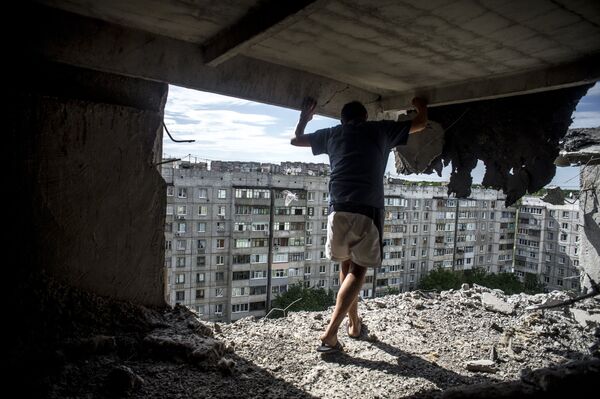
"Donbass," Khrolenko noted, "has stood in the way of the Maidan for four years now, and is leading Poroshenko into a state of despair. Kiev is probably still hoping to exact revenge militarily, even after the devastating defeat at Debaltsevo [in 2015] and three years of mindless shooting from all calibers of weaponry at their civilian compatriots in the east."
In truth, Khrolenko noted, what Kiev now needs is a reality check. After all, for UN forces to begin a mission in Ukraine, they would need to receive the approval of the UN Security Council and its five veto-endowed permanent members, including Russia.
"Russia is a permanent member of the Security Council and has the right of veto. If a group of countries attempts to 'solve' the Ukrainian problem without taking account of Russia's interests, Russia will certainly use this right. And since the fundamental decision to introduce UN troops, including their composition and powers endowed to them, also depends on Russia's position, it's technically impossible to convert Kiev's abstract peacekeeping operation into a military operation using NATO troops."
Ultimately, the journalist stressed that "if uncontrollable processes develop in Ukraine, a UN peacekeeping mission in the conflict zone will definitely appear – and it will include Russian representatives, whether or not Poroshenko might wish it. In any case, the fate of Ukraine will be solved taking into account the geopolitical interests of Russia, which Western powers should not have ignored beginning in December 2013 [when the Maidan 'revolution' began to pick up steam] and even before then."

